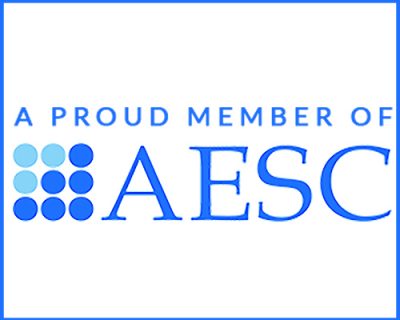 Sourcing and securing high performing talent, those A-class players who are almost always employed, are rarely actively applying for jobs via job boards. Identifying them is a skill that takes time and research. Enticing them takes knowledge, expertise and effort. Selling your opportunity takes persuasion, knack and competence. Coaching them on career development, advantages and pros and cons of moving roles, takes patience, empathy and understanding. So, to get through all of this and then make a job offer it has to be compelling. It has to make the person feel valued and most of all it has to make them feel delighted to be joining you!
Sourcing and securing high performing talent, those A-class players who are almost always employed, are rarely actively applying for jobs via job boards. Identifying them is a skill that takes time and research. Enticing them takes knowledge, expertise and effort. Selling your opportunity takes persuasion, knack and competence. Coaching them on career development, advantages and pros and cons of moving roles, takes patience, empathy and understanding. So, to get through all of this and then make a job offer it has to be compelling. It has to make the person feel valued and most of all it has to make them feel delighted to be joining you!
Time and time again, we see organisations go through an executive search process, which involves a significant investment of time, energy and emotional involvement by all parties, to then deliver a less than compelling job offer. Why? Why after all of this, would you try and save a few bucks and risk diluting the candidate’s excitement and ultimately question their worth?
Last year, we had an example of finding a candidate for a hard to fill role, a needle in a haystack. She had recently turned down another role and when asked why she declined, it wasn’t because they weren’t a great company, it wasn’t because she didn’t want to work with the leader, it wasn’t the location, the offices or the long-term career options, it came down to a luke-warm offer of employment. After all the wooing and “wining and dining”, the organisation decided to just match the candidate’s current salary. They said they would review the salary again at six months with a potential review. This offer made it seem that the client was unsure of their decision and were even second-guessing their choice, demanding the candidate prove themselves first and then they would be rewarded. It left the candidate feeling perplexed, deflated and ultimately, undervalued. She declined.
Here’s 7 tips so you don’t get caught making the same mistake:
1 – Make a confident and concise decision – have a vigorous search and recruitment process so you don’t second guess or hope your decision is right. This will make you feel confident and trust your judgement that this person is the right person for your vacancy.
2 – Trial close – in our business, we never make the real job offer before asking the candidate hypothetically if they were offered, would they accept? This question allows for pause, hesitation and the opportunity to discuss and flush out any concerns the candidate may have before making a formal offer. This technique puts you in a position of strength an avoids negotiating after making an offer.
3 – Make your best offer upfront – don’t play games, what is your best and final offer? The most important factor in accepting a new job is compensation (49%), professional development (33%) and work/life flexibly (29%). Present all the benefits including statutory, incentives, non-monetary benefits and those factors most important to the candidate you have determined during the recruitment process.
4 – Put it in writing immediately – don’t delay. We recommend always presenting a formal written contract within 24 hours of making a verbal offer. If you haven’t heard back from them quickly, don’t wait! They might have questions, or you might be at risk of a counter offer.
5 – Welcome – once you have received a signed copy, ring them and welcome them to the firm. Yes, you have secured them and now the deal is done you are probably on to your next task or project until they start, but don’t forget this important human element to maintain engagement.
6 – Pre-start catch up – depending on their notice period and how long you have to wait before they start, it is a good idea to stay connected until day one. We recommend a casual coffee catch up, an office tour or an introduction to other team members to get people inducted early and to maintain your recruitment momentum.
7 – Day 1 – blow their socks off – have the basics ready! Someone to greet them day one, business cards printed, technology set up, email announcement etc. Last week, we heard of someone starting a new role and the boss was still on holidays and had forgotten they were starting, no one was expecting them! What can you do beyond the basics? A morning tea, a welcome gift, assign them an internal mentor, a meeting with the CEO….the options are endless to make them feel valued.
Make a compelling job offer first time, every time. Delight the candidate. Make them feel special and worthy. If you can’t, maybe the question should be ‘is this the right candidate’ after all?












 Finding talent, interviewing, recruitment, hiring, search and selection ….it’s easy! It’s not rocket science. How hard can it be, get resumes, interview, have a chat, make an offer – done! If only this was true….
Finding talent, interviewing, recruitment, hiring, search and selection ….it’s easy! It’s not rocket science. How hard can it be, get resumes, interview, have a chat, make an offer – done! If only this was true….


 Last week, our team travelled to Sydney to be part of LinkedIn’s Most Socially Engaged Staff Agencies awards to celebrate the best in social recruiting.
Last week, our team travelled to Sydney to be part of LinkedIn’s Most Socially Engaged Staff Agencies awards to celebrate the best in social recruiting.




 Sourcing and securing high performing talent, those A-class players who are almost always employed, are rarely actively applying for jobs via job boards. Identifying them is a skill that takes time and research. Enticing them takes knowledge, expertise and effort. Selling your opportunity takes persuasion, knack and competence. Coaching them on career development, advantages and pros and cons of moving roles, takes patience, empathy and understanding. So, to get through all of this and then make a job offer it has to be compelling. It has to make the person feel valued and most of all it has to make them feel delighted to be joining you!
Sourcing and securing high performing talent, those A-class players who are almost always employed, are rarely actively applying for jobs via job boards. Identifying them is a skill that takes time and research. Enticing them takes knowledge, expertise and effort. Selling your opportunity takes persuasion, knack and competence. Coaching them on career development, advantages and pros and cons of moving roles, takes patience, empathy and understanding. So, to get through all of this and then make a job offer it has to be compelling. It has to make the person feel valued and most of all it has to make them feel delighted to be joining you!